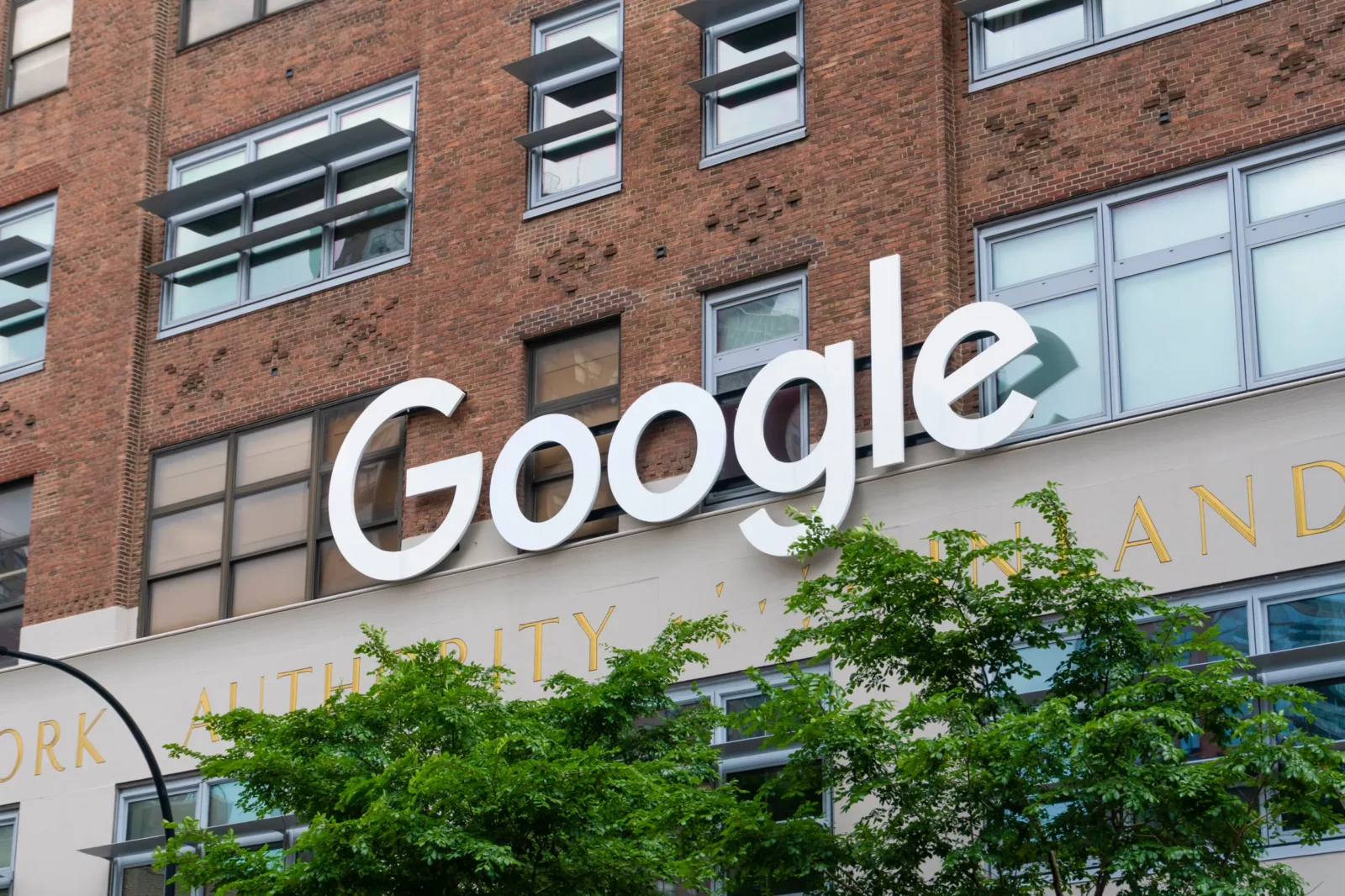News Corp Salvo at Google Shows Even Free Marketeers Will Demand Regulatory Responses to Disruption
If you haven’t had your daily fill of irony yet, let me tell you about the Euro-skeptic, free marketeer news organization appealing to European regulators to guarantee “fair returns” in the wake of Internet-driven disruption.
On Wednesday, News Corp released a letter from its CEO Robert Thomson to the EU competition commissioner Joaquín Almunia, criticizing Google and championing regulators to act against the search provider, following similar demands by the news publisher’s European peers. Unfortunately, Thomson’s letter received about as much fact-checking as a News Corp tabloid. (Jeff Jarvis has already annotated the letter’s “staggering” “willful blindness to irony” on the News Genius platform).
News Corp publications have championed tech disruption before, but apparently those principles go out the window when News Corp is the one being disrupted. In fact, News Corp’s own Wall Street Journal previously complained that Google had become its competitors’ “piñata,” who were demanding “a regulatory veto” notwithstanding the fact that they “haven’t demonstrated any economic harm” stemming from the search provider. Yet this week, News Corp itself jumps into the piñata party, waving the European banner.
“News Corp has significant interests in Europe, including The Times, The Sun and The Wall Street Journal Europe, and a network of local language business newswires, as well as the HarperCollins book publishing business. We are not a small company…”
Compare this to the conglomerate’s history of editorializing against Europe. Murdoch himself has actively campaigned against the EU, allegedly having threatened editorial opposition by his papers against pro-EU politicians. DisCo isn’t the first to notice the irony of this; as Guardian blogger Roy Greenslade writes, “A publisher who has raged against the European Union and all its works for the best part of 35 years is now calling for its commission to act on his behalf.” In the Financial Times, Jarvis observed that News Corp and others were “trying to eliminate competition by hiding behind the skirts of government – ironic for conservative corporations that abhor big government in any other circumstance”.
But this time its different, Thomson says, because Google:
“has been a platform for piracy and the spread of malicious networks, all while driving more traffic and online advertising dollars to Google. A company that boasts about its ability to track traffic chooses to ignore the unlawful and unsavoury content that surfaces after the simplest of searches. Google has been remarkably successful in its ability to monetize users, but has not shown the willingness, even though it clearly has the ability, to respect fundamental property rights.”
We’ve previously recounted the extent to which major services like Google invest in hindering access to infringing content, and promoting the visibility of lawful content. Like other major U.S. Internet brands, Google employs elaborate piracy prevention strategies, fielding over 30 million takedown requests last month alone – usually within 6 hours.
Setting aside how counterfactual Thomson’s assertion is, it is peculiar to compare his implication that Google should track users’ access to unauthorized content with Rupert Murdoch’s tweets that user tracking is worse than the NSA. That being said, News Corp’s own Wall Street Journal has defended warrantless surveillance by the “surveillance state”, and of course News Corp itself just emerged from a phone-hacking and bribery scandal that led to criminal convictions and the dismantling of one of its properties. (Note that on the privacy front, while search providers are compelled to comply with the wholly unmanageable European “right to be forgotten,” News Corp’s papers are carved out of this obligation.)
Thomson’s complaint about “unlawful and unsavoury content” indexed by Google overlooks the fact that much of the unsavoury content in news indices comes from News Corp’s own tabloids. Would News Corp not protest ‘abuse of power’ if a search provider censored its tabloid that infamously puts topless women on the third page of one of its “news” publications? One would imagine, considering his comment:
“Sudden changes are made to the ranking and display of Google search results, which inevitably maximise income for Google and yet punish small companies that have become dependent on Google for their livelihood. Meanwhile, in recent months, Google has developed a “certification” process for Android-related products which allows it to delay or deny content companies and other businesses access to the mobile operating system, while giving itself the freedom to develop competing products. This development reflects the exponential evolution of Google from a company that is “open” to one that is selectively closed and willing to exploit its dominant market position to stifle competition.”
While offering no evidence, Thomson alleges that Google changes its algorithm to punish “small companies” and Android requires companies to “certify” apps, in order to assert market power. Ironically, many calls for manipulating search algorithms come from content producers, including Thomson himself, who just months ago demanded that Google change its algorithm to punish allegedly infringing sites. One would think Thomson would be happy that Google now downranks such sites, as he demanded, yet his letter to the Commission instead argues that manipulating search algorithms is unjust.
Of course, all search providers tweak their algorithms to provide more relevant results (and prevent the “gaming” of search results that distort the authenticity of rankings), and no evidence has been found of manipulation designed to punish a competitive company. The European Commission’s own Q&A states that “certain algorithms by Google may lead to both downward and upward movements in the ranking of specialised search services in Google’s web search services.”
Thomson’s complaint about app certification is particularly rich. Only two paragraphs earlier he was complaining about uncensored Google services spreading of malicious content, yet here he criticizes the process through which Android apps are certified to ensure that they are trustworthy. (For a fuller analysis of competition arguments regarding Android, see this post from my co-blogger Dan.)
The demand for regulatory intervention against disruption is manifest when Thomson writes:
“Virtually every newspaper in Europe is in the midst of upheaval, and some will surely not exist five years from now, in part because of their own flawed strategy and lack of leadership, but also because the value of serious content has been commodified by Google…. This process is at a relatively early stage and needs constant monitoring to ensure that abuses are halted and that there is a fair return for newspapers, publishers and other investors in original content.”
While credit is due for acknowledging “flawed strategy and lack of leadership” by some in the new sector, Thomson’s call for “constant monitoring” and demanding assurances of a “fair return” are not what one usually hears from conservative free market publications. Generally, free marketeers don’t demand price guarantees, but instead resist regulatory efforts to suppress disruptive innovations that lead to efficiency, convenience, cost reduction in existing markets, and growth in new markets. These principles don’t seem to survive News Corp’s first encounter with disruption, however. By allowing blogs and smaller news outlets to compete with News Corp’s tabloids, news aggregation has democratized news creation, giving a competitive chance to smaller news outlets that can out-report News Corp properties on niche subjects (such as properly identifying who invented the Internet).
It shouldn’t go unnoticed that Thomson’s letter comes at a time when European legislatures are attempting to manufacture a new “ancillary” intellectual property right in quotations, so as to extract revenues from U.S. search, aggregation, and social media sites that can then be apportioned among domestic news publishers. There isn’t a better time to jump on the media protectionism bandwagon. (Of course, news publishers have always been able to opt-out of news aggregation; but some in Europe want to be able to opt-in, and be paid upon doing so.)
“The internet should be a canvas for freedom of expression and for high quality content of enduring value. Undermining the basic business model of professional content creators will lead to a less informed, more vexatious level of dialogue in our society. There will be no shortage of opinions, in fact, opinions will proliferate, but they will be based on ever flimsier foundations. The quality of discourse will inevitably deteriorate and the intemperate trends we are already seeing in much of Europe will proliferate.”
For those not steeped in the business-speak, the reference to “high quality content” is a euphemism for industrially produced content. Popular YouTube stars, for example, despite being on the cover of major magazines (e.g., Variety, Bloomberg) are not “high quality content.” That term is reserved for the “professionals.” The complaint, therefore, is that blogs and user-generated content are disrupting the established media business model. That’s right — bloggers will result in a “more vexatious level of dialogue.” (Query whether a topless photo peddling, phone-hacking, confusing-who-invented-the-Internet-when-politically-convenient publisher is the best barometer of “quality of discourse” in news.)
The timing of Thomson’s hostility of Internet-induced competition is poor. Only a day earlier, Ernst & Young reported that that all established media industries are profiting, many quite handsomely, from the rise digital platforms. According to E&Y, “digital is very much driving profits now, instead of disrupting it.” According to the Washington Post, “[t]he Internet isn’t killing media anymore. It’s helping it make a killing in profits.” It does not reflect particularly well on News Corp to bemoan disruption even as analysts proclaim that its industry peers are making a killing off it.
This isn’t the only accusation from Thomson that suffers from poor timing. He writes:
“With video, Google routinely displays YouTube results at the top of its search pages, even if YouTube is not the original source of that content – the reason for that bias is that YouTube gets a cut of the revenue and takes income away from the company or person who created and posted that video.”
Yet no sooner had he dispatched his letter than Rupert Murdoch happily tweeted about his YouTube surfing, pointing out Fox’s Simpsons content on YouTube as “hilarious” and “brilliant fun.” (Indeed, even as News Corp complains about YouTube, the News Corp YouTube channel sells The Simpsons episodes on the platform for $1.99.)
Ultimately, however, the News Corp salvo isn’t germane to DisCo simply because it sets a land-speed record for hypocrisy; that’s hardly new in policy circles. News Corp’s letter embodies yet another example of disruption discontent: established incumbents, threatened by disruptive innovation in the marketplace, seek to manipulate the regulatory apparatus to their advantage. Sadly, in times of disruption, even the self-proclaimed free marketeers are not immune from the siren song of regulatory manipulation.








